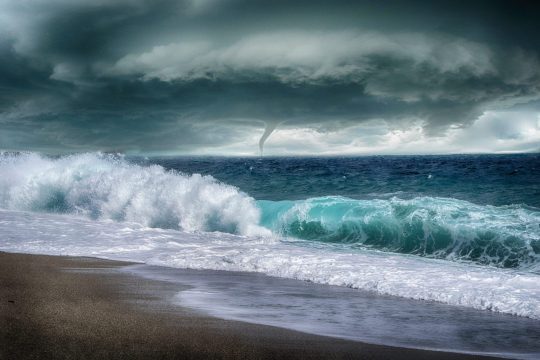
When it comes to natural disasters, or more recently a pandemic, you can never be too prepared. As we approach storm season and the beginning flurries of winter, it is important that both you, your employees, and your building are prepared for storms and natural disasters. That is why we have cumulated a list on how you can become prepared for storms and natural disasters.
Pre-preparation
1. Creating a “Storm Team” is extremely beneficial. This team helps to create, educate, and implement strategies for the company should there be a natural disaster, storm, or pandemic.
2. Design a diagram of the building which shows where all exit doors, stairwells, and emergency equipment are placed.
3. Create a list of all contractors, sub-contractors, and service providers that are available during severe weather. This list should be for both local and national companies.
4. Make sure you have plenty of stock, equipment, and vital components to your company, so you can maintain open and functioning. If you are unable to keep these things stocked up, make sure you know a company that can get you the supplies you need during emergencies.
5. Keep your contact list up to date of all phone numbers for employees, bot cell phone and home phone.
6. If your building does not have a generator, create a backup plan for how to receive power and maintain in business. This could be working from home, should people have generators at home or alternative fuels.
7. Contact your local fire and police station to assist in creating your emergency plans and maintain good relationships.
8. Cultivate a security plan should your building be affected by a storm.
9. Keep a fire-resistant safe with all important documents and have all electronical data backed up to a software or the Cloud.
Emergency Equipment
1. Test all your emergency equipment quarterly during the year. Preform maintenance right away on emergency equipment should it not function properly.
2. Try using equipment that is non-reliant on a source of power such as battery-operated flashlights and radios.
3. Arrange for several different forms of emergency communication such as cell phones, walk-e-talkies, or radios.
4. Make sure you have plenty of boards and plywood to cover windows from flying debris and a tarp to cover your property should your building become damaged during the storm.
In the case of a fire, be sure to never have anyone park in the fire lanes and have a reliable water source outside of the building such as a fire hydrant or water pump should there be a fire.
Prepare, prepare, prepare! Make sure all employees and building staff know the plan and evacuation routes should there be an emergency.
Interested in learning more? Please email us at hello@veroinsure.com or call 773-945-6000.
Vero Insurance is a niche broker with a focus on providing insurance placement and risk management services to high-income families. Here at Vero, we love to provide you with exciting and fun articles to learn more about insurance and how it impacts your life. Visit our other blogs to find more information.
While Vero does offer a wide variety of personal insurance coverages, our main coverages include: personal umbrella insurance, auto insurance, and homeowner’s insurance.

